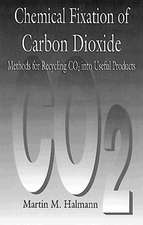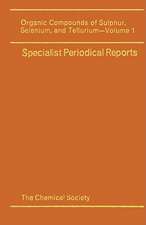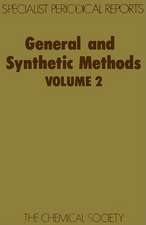Sustainable Solvents: Green Chemistry, cartea 49
Autor James H. Clark, Andrew Hunt, Corrado Topien Limba Engleză Hardback – 10 mai 2017
Preț: 1383.21 lei
Preț vechi: 1608.38 lei
-14% Nou
264.70€ • 274.68$ • 221.25£
Carte disponibilă
Livrare economică 22 februarie-08 martie
Specificații
ISBN-10: 1782623353
Pagini: 431
Dimensiuni: 241 x 162 x 28 mm
Greutate: 0.68 kg
Editura: Royal Society Of Chemistry
Seria Green Chemistry
Textul de pe ultima copertă
Solvents are ubiquitous throughout the chemical industry and are found in many consumer products. As a result, interest in solvents and their environmental impact has been steadily increasing. However, in order to achieve maximum integration of new green solvents into the relevant chemical sectors, clarification of the social, economic, and environmental implications of solvent substitution are needed.
This book explores the solvent life cycle, highlighting the challenges faced at various points, from production, through the supply-chain and downstream use to end-of-life treatment. It also discusses the potential benefits that a green chemistry and bio-based economy approach could bring. The current state-of-the-art of green solvents is evaluated along these lines, in addition to reviewing their applications with an appreciation of sustainability criteria.
Providing a critical assessment on emerging solvents and featuring case studies and perspectives from different sectors, this is an important reference for academics and industrialists working with solvents, as well as policy-makers involved in bio-based initiatives.






















